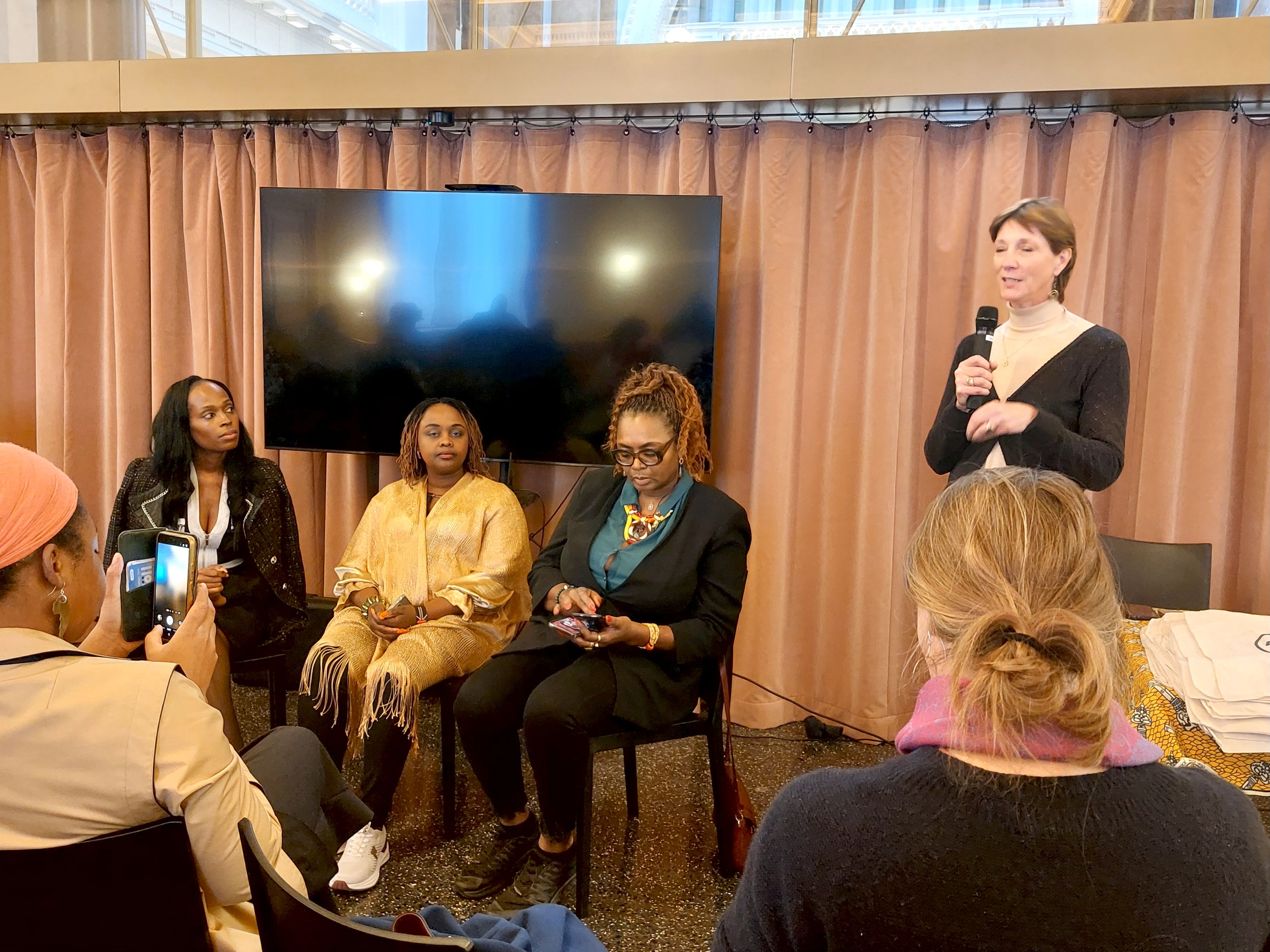
For the first time, two visionary women have been jointly honored as the 2025 African Diaspora Agrofood Entrepreneurs of the Year in recognition of their innovative projects and impact across continents. Nathalie Schots of Entrepreneurs for Entrepreneurs Belgium announced Margret Debrah of Eato Ghana and Olga Yanda of Wazieats Cameroon as the 2025 winners.
Both entrepreneurs are using technology to strenghten the African food markets, while also building local economies, promoting sustainable food systems and demonstrating how diaspora entrepreneurship can drive inclusive growth. Thus making African foods more accessible to local and global consumers while creating opportunities for farmers, producers and local communities.
In her remarks, Nathalie emphasized that her organization’s role goes beyond preparing entrepreneurs for growth . it is also about helping them identify partnerships and synergies that can drive positive transformation and shared success.These two trailblazing winners of the award will embody the spirit of collaboration, creativity and commitment to Africa’s agrofood future.
For more information about the winners : https://www.wazieats.com/ | https://www.linkedin.com/company/eato-network/
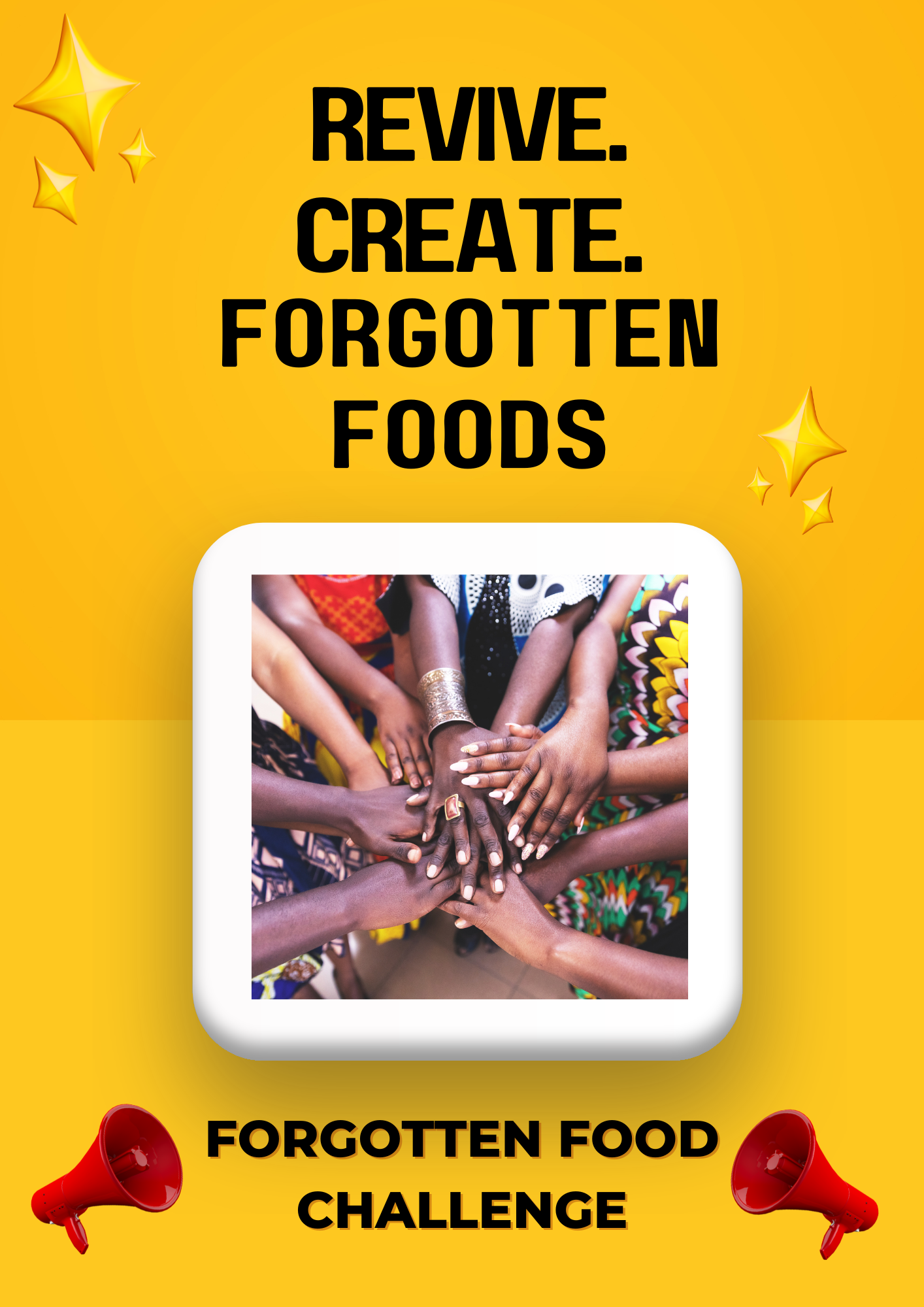
The Collective Action on Forgotten Food is calling on women artists, designers, illustrators and storytellers, to use their creativity to reimagine the power of forgotten foods.
Your Mission:
Design a graphic image that represents the collective action on forgotten foods – celebrating women’s knowledge, heritage, resilience and creativity in shaping food systems and cultures.
Why Women?
Women carry recipes, seeds and stories across generations. Your art can give voice to these hidden treasures and inspire a global movement for food, culture and climate resilience.
Prizes for the Top 3 Women Creatives:
- A 1-year subscription to top creative platforms
- Spotlight features across our platforms and events.
- A Forgotten Food Package curated with women food producers
- Creative mentorship & networking with leaders in art and food
- Recognition as a Creative Woman Ambassador for the Collective Action on Forgotten Food
Deadline: September 30th, 2025
Submit your entry via email - This email address is being protected from spambots. You need JavaScript enabled to view it.
Let your art tell the story of women, food and the future. Together, we can ensure that no food and no woman’s voice is forgotten.
The Collective Action on Forgotten Food is an initiative of GFAiR - The Global Forum on Agricultural Research and Innovation, coordinated by The Food Bridge vzw and funded by the European Union with technical support from IFAD.
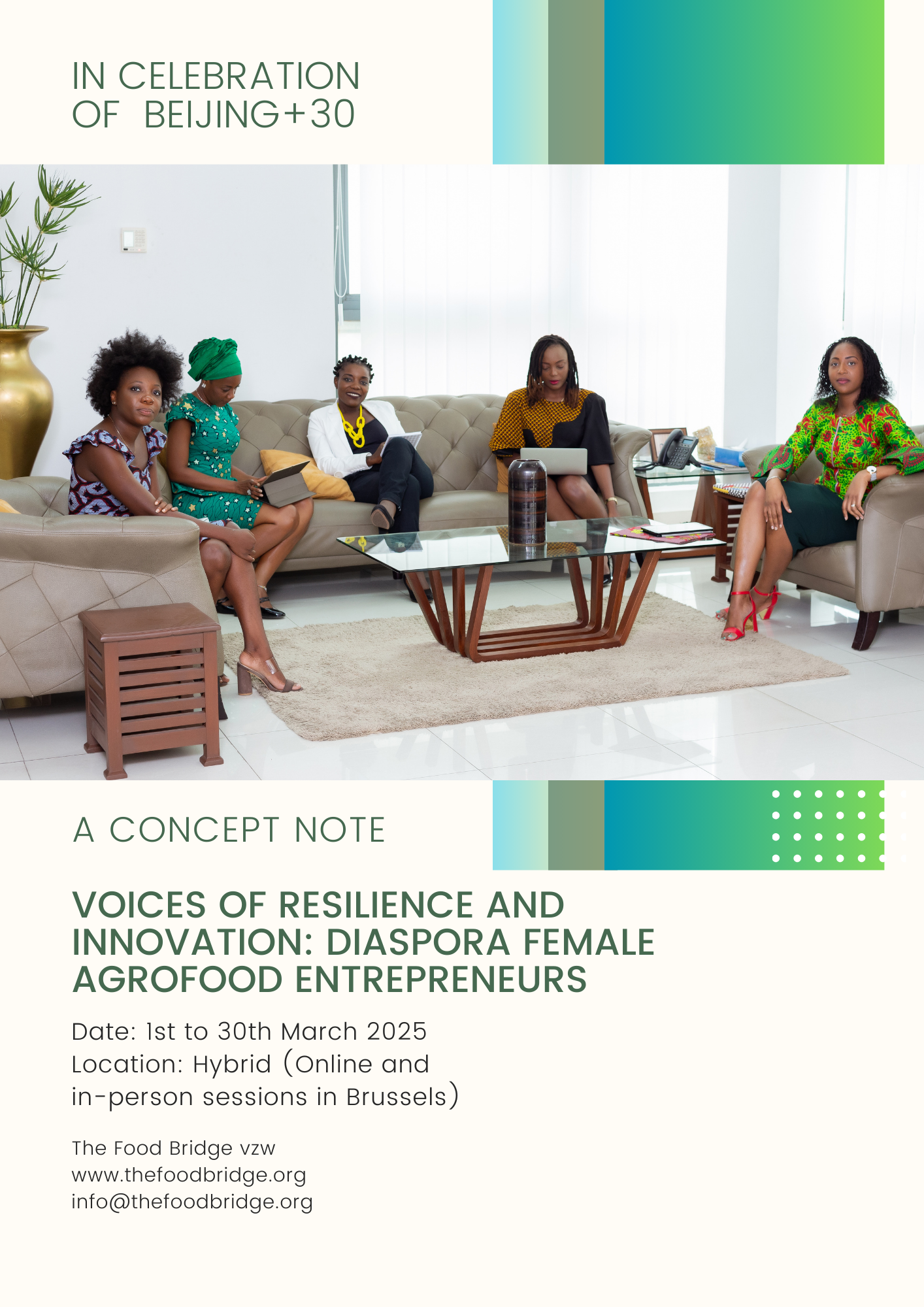 In 1995, the Beijing Declaration and Platform for Action was adopted, outlining a comprehensive framework for advancing women's rights and empowerment. Thirty years later, as we reflect on the progress made and the challenges ahead, it is essential to amplify the voices of women who embody resilience and innovation, particularly within marginalized communities such as the African diaspora.
In 1995, the Beijing Declaration and Platform for Action was adopted, outlining a comprehensive framework for advancing women's rights and empowerment. Thirty years later, as we reflect on the progress made and the challenges ahead, it is essential to amplify the voices of women who embody resilience and innovation, particularly within marginalized communities such as the African diaspora.
The female agrofood entrepreneurs are a true reflection of the importance of the Beijing declaration. These women are leading pivotal changes that have facilitated sustainable food production, preserving indigenous agricultural heritage, ensuring equitable food systems and fostering economic independence. Their contributions are vital for achieving gender equality, food security, and sustainable development.
The objectives of the program are :
- Celebrate Progress: Highlight the achievements of female diaspora agrofood entrepreneurs in advancing women's empowerment and sustainable development since the Beijing Declaration.
- Inspire Change: Share personal stories, hopes, and challenges from these women
- Motivate and inspire action towards embedding gender equality and empowerment in the agrofood entrepreneurship ecosystem.
- Amplify Voices: Create an online platform showcasing profiles, photos, and quotes from each entrepreneur, fostering global recognition of their contributions.
- Promote Advocacy: Build awareness about the need to support female-led agrofood enterprises and their role in sustainable development.
To learn more about the planned activities, partnerships and sponsorships, contact This email address is being protected from spambots. You need JavaScript enabled to view it.
 The Food Bridge vzw, with the support of its partners, publishes an annual Compendium of African Diaspora Agrofood Entrepreneurs. This publication highlights the achievements of African Diaspora agrofood entrepreneurs with projects based in Africa, the Caribbean, or Europe that have been operational for at least 3 years.
The Food Bridge vzw, with the support of its partners, publishes an annual Compendium of African Diaspora Agrofood Entrepreneurs. This publication highlights the achievements of African Diaspora agrofood entrepreneurs with projects based in Africa, the Caribbean, or Europe that have been operational for at least 3 years.
Participation is free of charge. All publication costs are covered by the Food Bridge and its partners.
Application links:
English : https://forms.gle/59PnTb7yDWib11XD9
French : https://forms.gle/onnP9sX53mDK7isQ9
Objectives of the Compendium:
Enhance Visibility: Promote the work of African Diaspora agrofood entrepreneurs across Europe and Africa.
Increase Brand Awareness: Help consumers recognize and trust the featured brands and products.
Highlight Economic Contributions: Celebrate the entrepreneurs’ impact on both their countries of origin and residence
Promote Development Roles: Showcase their roles as agents of local and regional development.
Influence Policy: Advocate for policies that support entrepreneurs and strengthen the agrofood sector at local, national, and international levels in both Africa and Europe.
Spotlight: Policy Dialogue Panel at the 2024 African Diaspora Agrofood Forum
We're excited to highlight the opening panel of ADAF24: Policy Dialogue: Facilitating Innovative Agrofood Entrepreneurship; African Diasporas and the 2030 Agenda
This panel will discuss the role of the African Diaspora in driving innovative agrofood entrepreneurship that aligns with the UN’s 2030 Agenda for Sustainable Development . Policy makers, experts and entrepreneurs will discuss how to create policies that foster growth, sustainability and opportunity in agrofood sectors across Africa and its diaspora.
Meet some of the speakers on this panel: 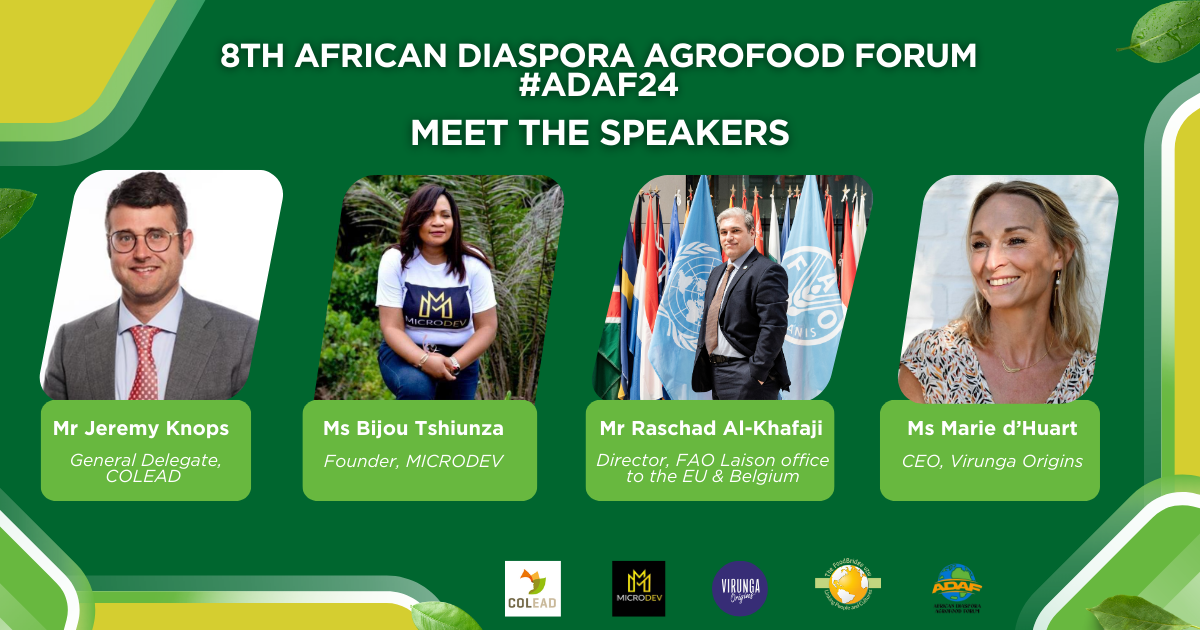
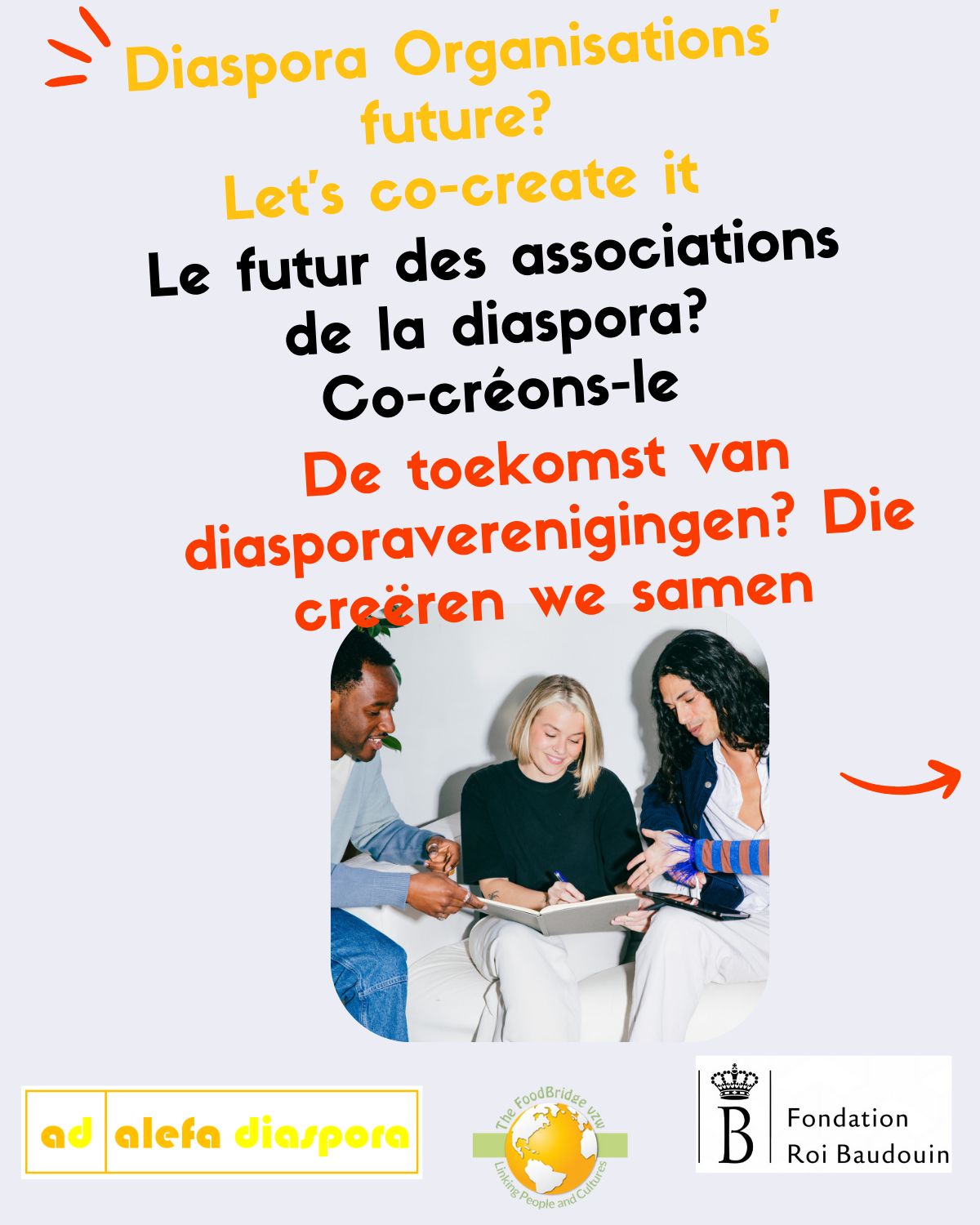
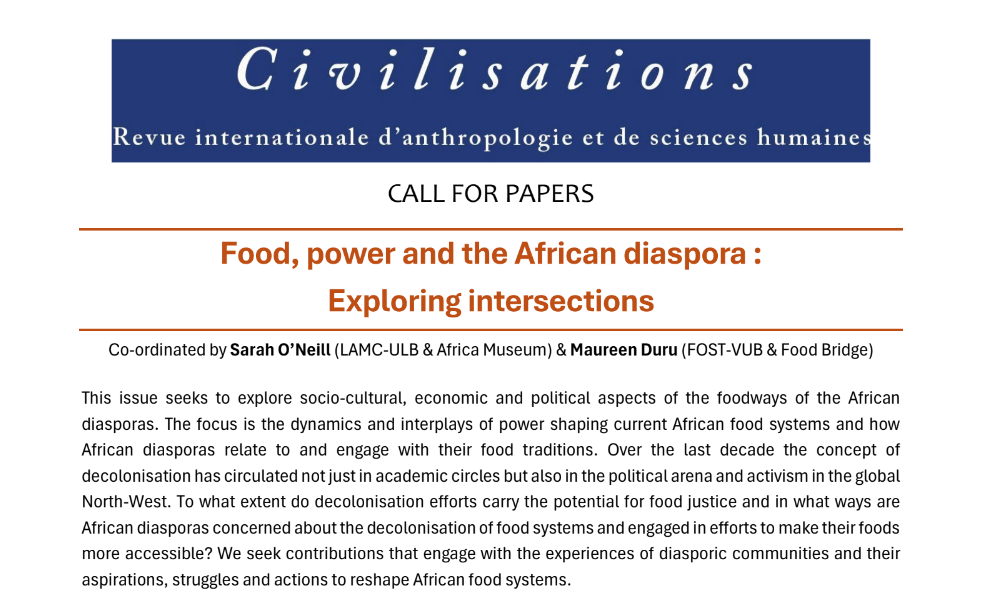 Following the successful conference on decolonization, diasporas, and the African food system, we are pleased to announce a call for papers for a special issue of the international journal Civilizations, which will be coordinated by Dr. Sarah O'Neill and Dr. Maureen Duru.
Following the successful conference on decolonization, diasporas, and the African food system, we are pleased to announce a call for papers for a special issue of the international journal Civilizations, which will be coordinated by Dr. Sarah O'Neill and Dr. Maureen Duru.
We invite scholars, researchers, and practitioners to submit papers that offer new insights and perspectives on the theme: Food, Power, and the African Diaspora: Exploring Intersections. This special issue seeks to delve into the complex relationships between food systems, power dynamics, and the African diaspora, highlighting the historical, cultural, and socio-economic intersections.
Topics of interest include, but are not limited to:
• The role of food in the cultural identity and heritage of African diasporic communities.
• Historical analysis of colonialism and its impact on African food systems.
• Power dynamics within global food trade and its effects on African nations and diasporic communities.
• Food sovereignty and security in African diasporic contexts.
• Culinary traditions and innovations within the African diaspora.
• The intersection of food, politics, and social movements in African diasporic communities.
• Contributions of African diasporic communities to global food culture and systems.
• Case studies on decolonizing food practices within the African diaspora.
We encourage papers that are not only informative but also provide new insights and provoke thought on the edition's theme. Submissions should contribute to a deeper understanding of how food and power interact within the African diaspora and offer fresh perspectives on these intersections.
Submissions for articles may be sent in French or British English, and should include a
title, an abstract (500 words maximum), 4-5 keywords, and an indicative bibliography.
The journal also accepts suggestions for book reviews linked to the central theme, as well
as review articles covering multiple recent publications on this topic.
Proposals should be sent before 15 October 2024 to the editorial assistant of the journal: This email address is being protected from spambots. You need JavaScript enabled to view it.
For more information or inquiries
contact : This email address is being protected from spambots. You need JavaScript enabled to view it.
This email address is being protected from spambots. You need JavaScript enabled to view it.
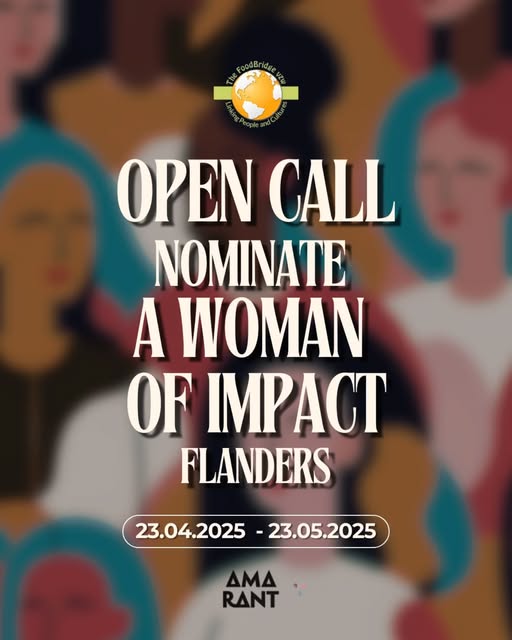 30 years ago in Beijing, women from around the world demanded equality and also made history. The Beijing Declaration became a global symbol of hope and action for women’s rights.
30 years ago in Beijing, women from around the world demanded equality and also made history. The Beijing Declaration became a global symbol of hope and action for women’s rights.
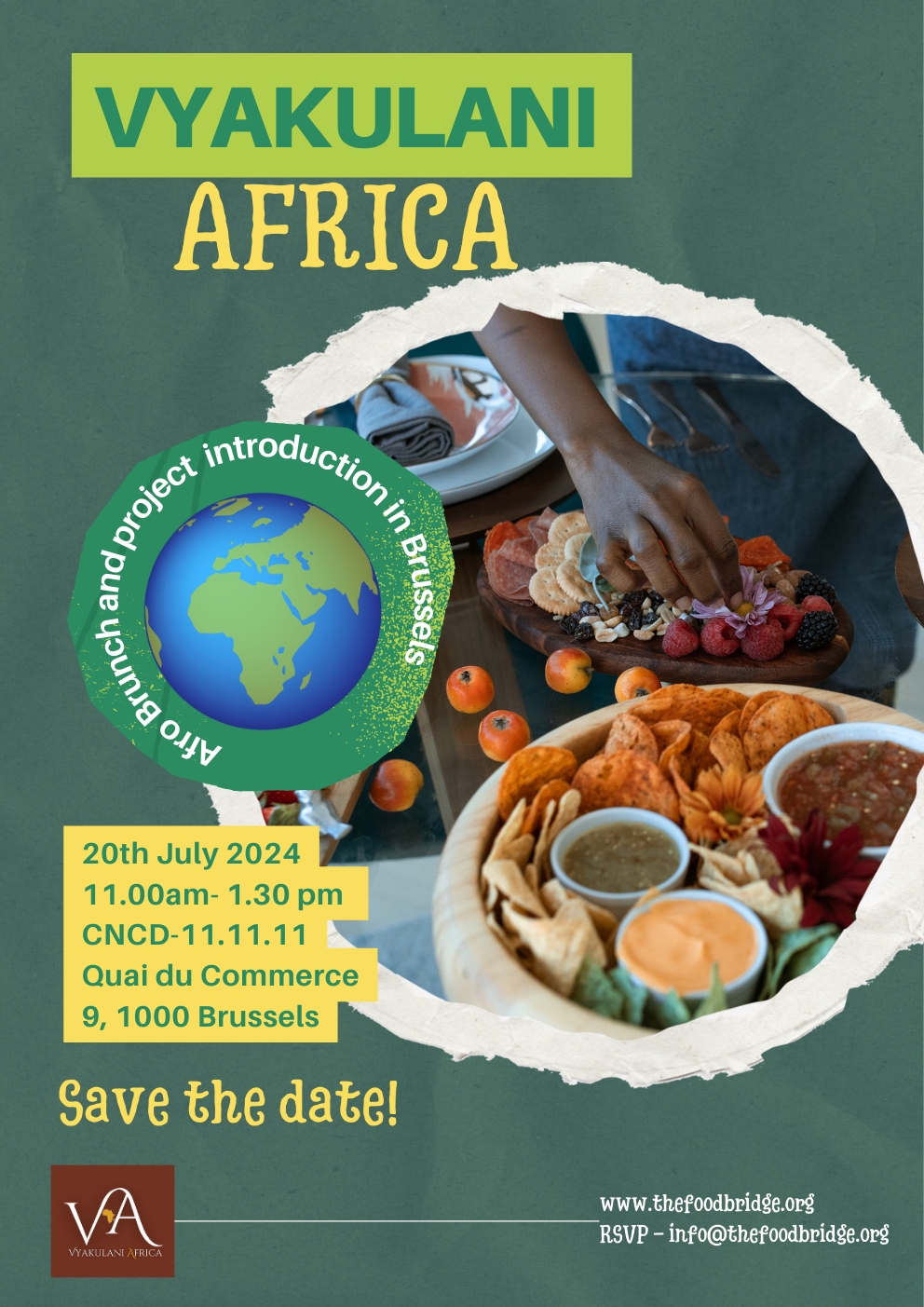 We are thrilled to invite you to a unique Afro brunch that celebrates the rich and diverse flavors of Africa. This brunch is more than just a meal; it's about community, connection, and cultural exchange. It will be an immersive cultural experience for people from all walks of life to come together, share stories, and celebrate the rich cultural tapestry that African cuisine represents.
We are thrilled to invite you to a unique Afro brunch that celebrates the rich and diverse flavors of Africa. This brunch is more than just a meal; it's about community, connection, and cultural exchange. It will be an immersive cultural experience for people from all walks of life to come together, share stories, and celebrate the rich cultural tapestry that African cuisine represents.
At the heart of the Afro Brunch is the Vyakulani Africa Project which plans to engage with the African diaspora in Belgium to document and share the diverse culinary traditions that have traveled from Africa to Europe. By working closely with local communities, the Vyakulani Africa Project’s aim is to create a comprehensive and interactive map of African food heritage in Belgium, showcasing the rich and varied gastronomic traditions that African migrants have brought with them.
By participating, you can:
- Share Your Stories: Contribute your personal and family recipes, food stories, and culinary traditions to a collective database that celebrates the African food legacy.
- Learn and Discover: Gain insights into the diverse flavors and cooking techniques of Africans through workshops, cooking classes, and cultural exchanges.
- Connect with the Community: Meet like-minded individuals, build connections, and be part of a vibrant community that values and celebrates African culture.
- Promote Cultural Heritage: Help bring the rich culinary heritage of Africa to a wider audience, fostering appreciation and understanding of African culture through food.
How to Get Involved
The Vyakulani Africa Project is open to everyone who is passionate about African cuisine and culture. Whether you are a seasoned cook, a food enthusiast, or someone with a keen interest in cultural heritage, there is a place for you in this project. Join us on the 20th of July 2024 and get more information. The venue is CNCD-11.11.11 Quai du Commerce 9, 1000 Brussels, from 11am to 1.30pm.
Vyakulani Africa is an initiative of the Food Bridge vzw in collaboration with the Africa museum Belgium, Diaspofood Research group ULB, Sankaa vzw and funded by the EU Impetus Accelerator Program
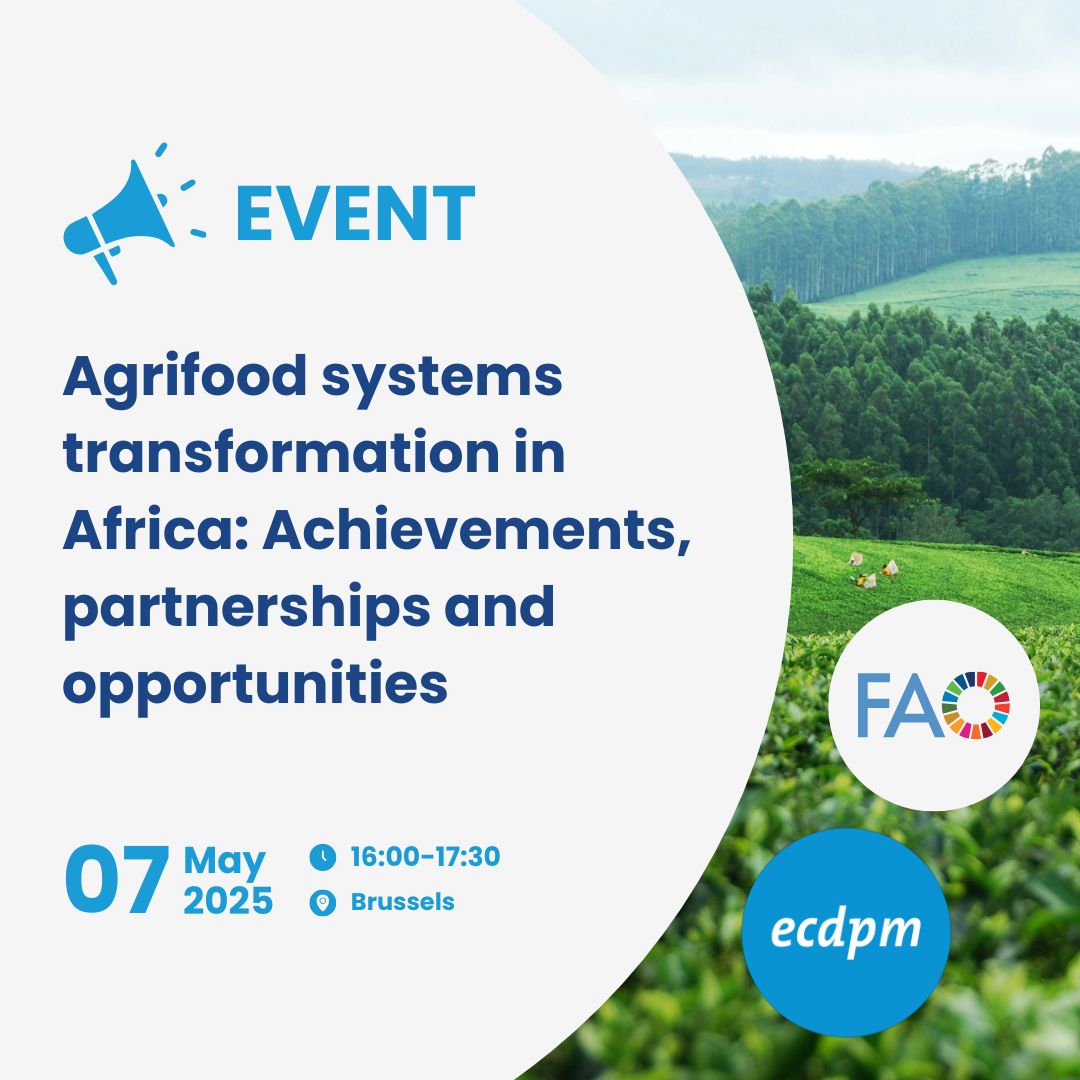
Registration is still open for the upcoming FAO & ICMPD event on 𝗔𝗴𝗿𝗶𝗳𝗼𝗼𝗱 𝗦𝘆𝘀𝘁𝗲𝗺𝘀 𝗧𝗿𝗮𝗻𝘀𝗳𝗼𝗿𝗺𝗮𝘁𝗶𝗼𝗻 𝗶𝗻 𝗔𝗳𝗿𝗶𝗰𝗮: Achievements, Partnerships & Opportunities.
Maureen Duru, the Founder and Director of the Food Bridge vzw will be one of the speakers at the event
This event will offer a good opportunity to share diverse perspectives and explore strategic solutions for transforming Africa’s agrifood systems.
Don’t miss out on this vital conversation shaping the future of food, sustainability, and innovation in Africa!
Date: 7 May 2025
Time: 16:00-17:30 (CEST)
Venue: L42, Rue de la Loi 42, 1000 Brussels.
The event will have in attendance Mr Abebe Haile-Gabriel, FAO’s Assistant Director-General and Regional Representative for Africa, who will present FAO’s initiatives across the region, including EU-funded projects. Opening remarks will be delivered by Raschad Al-Khafaji, Director of the FAO Liaison Office to the EU and Belgium . Other speakers include:
- H.E. Henry Tachie-Manson, Ambassador of the Republic of Ghana in Brussels
- Leonard Mizzi, Head of Unit, Sustainable Agri-food systems and Fisheries, European Commission (TBC)
- Guggi Laryea, IFAD Representative to the EU
- Koen Dekeyser, Policy Officer, ECDPM
- Maureen Duru, CEO, FoodBridge
- Thibault Christeler, Public Affairs Officer, EU-Africa Chamber of Commerce
Registration: https://docs.google.com/forms/d/e/1FAIpQLScRmZ0htOoCco8eCaZiuFfF-BkJgBAtUtd42Z1JfVOO5FgOAA/viewform
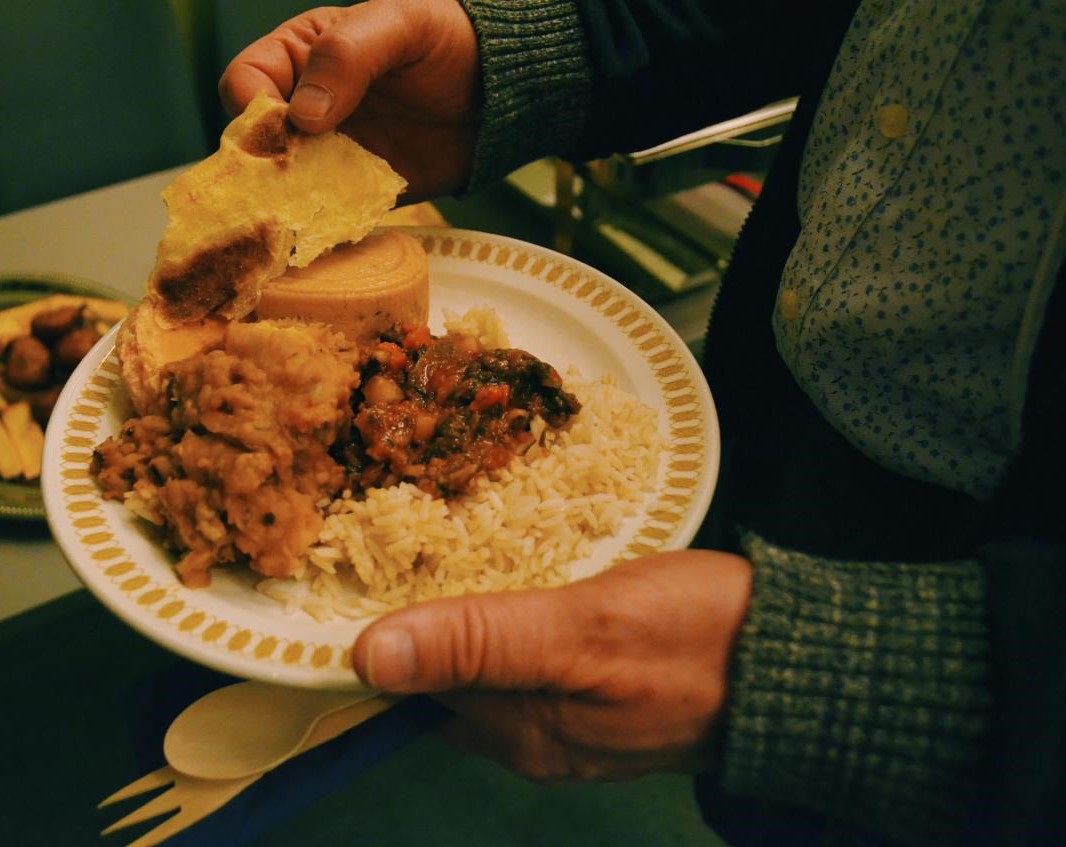
After much hard work, including an intensive but really informative bootcamp, the Food Bridge's new project Vyakulani Africa is finally accepted into the 2024 Impetus Accelerator program for citizen scientists!
Vyakulani is a Swahili word that represents the essence of our new citizen scientists project; with the dual connotation of "in the food" or "which food," thus reflecting the internal and external factors driving this study.
Despite Belgium's historical ties with Africa and a well-established African diaspora community, there is a notable lack of knowledge regarding African cuisine beyond this community. It is thus imperative to delve deeper into the factors contributing to this knowledge gap.
Our citizen scientist program will collect data on African food legacy in Belgium, the sustainability of home recipes and diets, including their transmission across generations and potential benefits for larger society (European citizens). The program will be implemented inAntwerp and Brussels.
We will use citizen scientists for data collection, organize outreach activities such as infosession, cooking demonstrations, food tastings, seminars, campaigns, and later make the project results available to the public. The program will run from July to December 2024
This project is an initiative of the Food Bridge vzw in partnership with Diaspofood ULB, Sankaa vzw and others, funded by the Impetus Accelerator Program.
